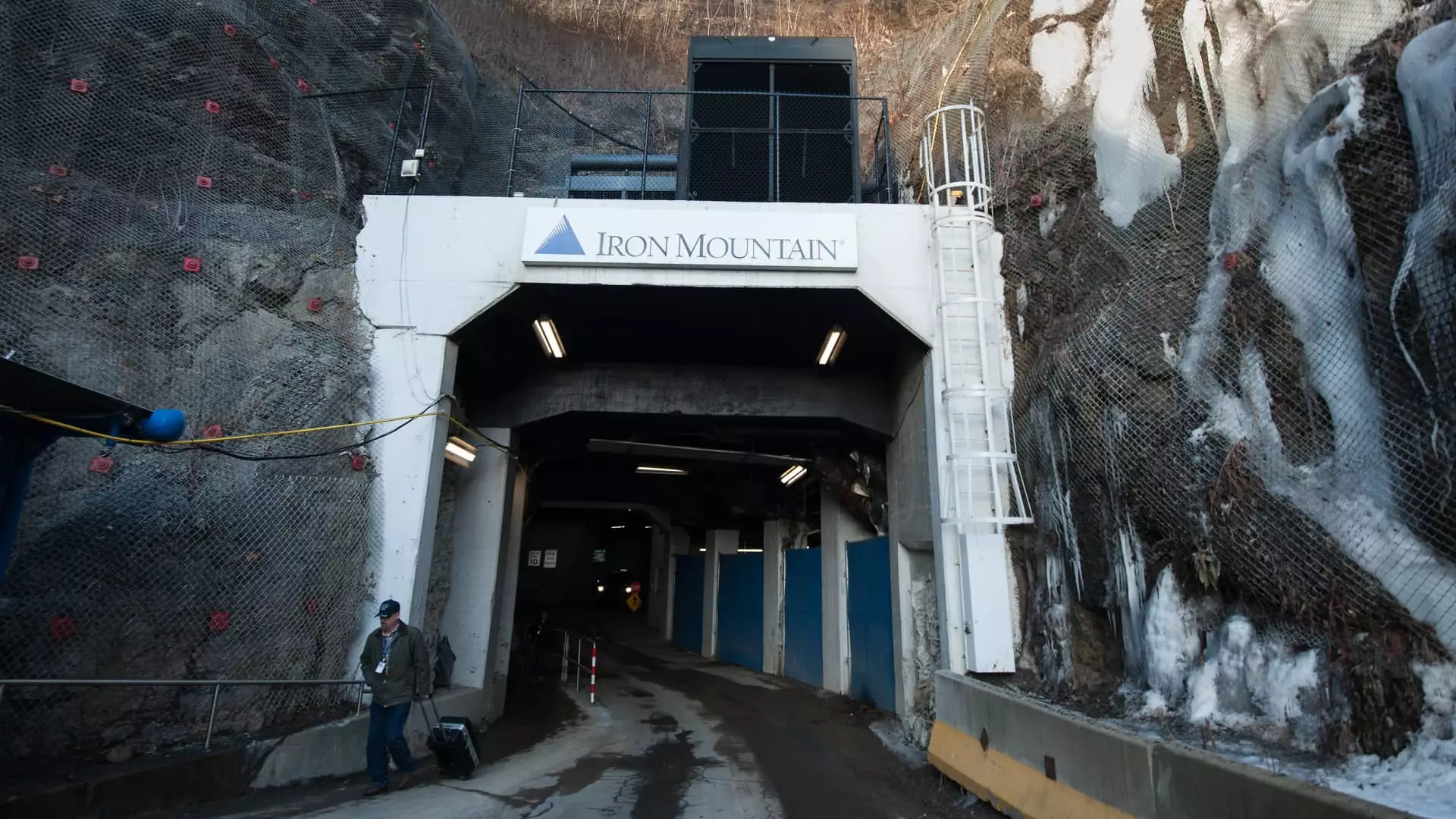Elon Musk, the publicly acclaimed entrepreneur and CEO of Tesla and SpaceX, has a penchant for stirring public discussions with his straightforward and often controversial remarks. Recently, he took center stage in the Oval Office alongside former President Donald Trump, delivering an impassioned critique of inefficiencies within the government, specifically highlighting the Department of Government Efficiency (DOGE). His statements prompted a deeper examination of how government contracts intersect with private companies like Iron Mountain, and what this means for their operations in an era increasingly defined by digital transformation.
Musk’s discourse on the inefficiencies of government operations focused particularly on a limestone mine in Pennsylvania, wherein extensive retirement paperwork is stored over 200 feet underground. His vivid description of the mine as a “time warp” reflective of the 1950s stunt sparked both intrigue and skepticism. Moreover, it raised questions about the logistics of processing federal retirements, linked to the mine’s elevator speed—a rhetorical device designed to emphasize the absurdity of outdated systems. This particular point, while dramatic, invites criticism for oversimplifying complex bureaucratic processes.
Musk’s characterization of a mine being central to retirement paperwork was an attempt to push for modernization, but it brushed over the intricacies of survival mechanisms intrinsic to governmental operations. Relying on traditional storage solutions has practical implications; yet Musk’s approach seemed dismissive of the steps already taken by various agencies to evolve.
Iron Mountain, the company managing this mine, found itself in a precarious position following Musk’s remarks. Its stock value plummeted by over 10% soon after his comments, eliciting concern that government contracts might be defunct. This financial turbulence draws attention to the vulnerabilities faced by companies heavily invested in government contracts, particularly when high-profile figures publicly critique their roles.
However, Iron Mountain’s CEO Bill Meaney was quick to pivot the narrative. He characterized Musk’s criticisms as an opportunity for growth rather than a setback, noting that the company derives more substantial revenue from digital transformation services than from physical document storage. With $130 million generated from digitization efforts, Meaney’s assertion that a focus on efficiency could bolster other sectors of their business is a strategic play that illustrates resilience in the face of adversity.
A major implication of Musk’s statements is the heightened scrutiny on the existing relationships between government offices and contractors like Iron Mountain. As agencies strive for increased efficiency to satisfy taxpayer expectations, partnerships like these stand at a crossroads. Firms are thus confronted with the dual challenge of meeting the government’s current demands while anticipating future reforms driven by technological innovation.
The government’s imperative to digitize records has never been more pressing. This necessity offers firms like Iron Mountain a pathway for expansion within federal dealings. However, as revealed by Wall Street analysts, dependence on government contracts can create instability. The sentiment that the financial markets might be overreacting to Musk’s critique— as suggested by Wells Fargo analyst Eric Luebchow—hints at a potential misunderstanding of Iron Mountain’s broader business model and its diversified revenue streams.
As the Trump administration moves forward with the DOGE initiative, stakeholders in both the government and private sectors must engage in proactive measures to facilitate transformative efficiency without jeopardizing existing relationships. The ripple effects of Musk’s criticism illuminate the precarious balance that companies like Iron Mountain must maintain when dealing with federal contracts.
The narrative surrounding DOGE raises vital questions about the future of governance. Will the emphasis on efficiency lead to a streamlined bureaucracy that embraces technological integration, or will it result in a rash destabilization of established systems? This intersection of scrutiny, economic impact, and the drive for modernization encapsulates the ongoing debate about the sustainability of government-private partnerships.
While Musk’s remarks draw attention to crucial inefficiencies, they also underscore the challenges and resilience of organizations navigating the complex landscape of government contracts. The dialogue initiated by such high-profile critiques serves as a catalyst for the ongoing evolution of both government operations and private enterprise. Ultimately, the journey toward improved efficiency and modernization must be a collaborative effort, balancing the goals and innovations of the private sector with the foundational needs of government agencies.


Leave a Reply